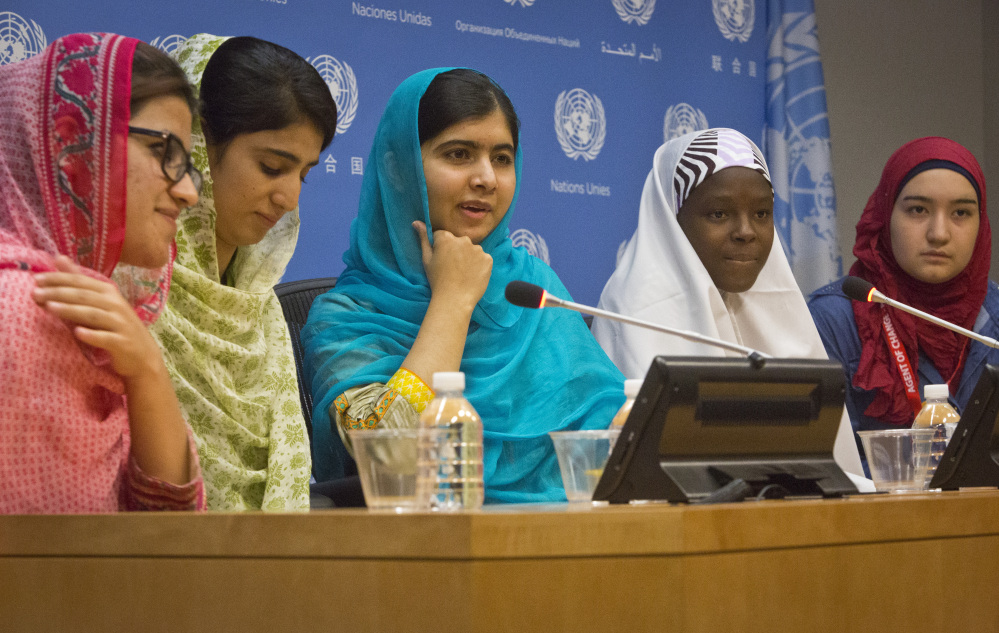UNITED NATIONS — With the bang of a gavel, international leaders approved an ambitious 15-year plan Friday to tackle the world’s biggest problems, from eradicating poverty to preserving the planet to reducing inequality. Now comes the tough part: Drumming up support and money to achieve the goals and transform the world.
When General Assembly President Mogens Lykketoft struck his gavel to approve the development road map, leaders and diplomats from the 193 U.N. member states stood and applauded loudly.
Then, the summit immediately turned to the real business of the three-day meeting – implementation of the goals, which is expected to cost $3.5 trillion to $5 trillion every year until 2030.
U.N. Secretary-General Ban Ki-moon set the stage, saying the agenda “embodies the aspirations of people everywhere for lives of peace, security and dignity on a healthy planet.”
The goals “are a to-do list for people and planet, and a blueprint for success,” Ban said.
The document, titled “Transforming our World: The 2030 Agenda for Sustainable Development,” not only outlines 17 broad goals but sets 169 specific targets.
The non-binding goals succeed the eight Millennium Development Goals adopted by world leaders 15 years ago. Only one of those has been achieved: halving the number of people living in extreme poverty, due primarily to economic growth in China. At least one other is close – cutting in half the proportion of people without access to clean water – and there are still three months until the goals expire.
The new goals include ensuring “healthy lives” and quality education for all, clean water, sanitation and reliable modern energy, as well as making cities safe, reducing inequality within and among countries, and promoting economic growth and good governance.
Critics say they are too broad, lack accountability and will lead to disenchantment among those most in need of hope.
Supporters say there is no choice but to go big in a world of expanding population, growing inequality, dwindling resources and the existential threat from global warming. They note that while the millennium goals were developed by then secretary-general Kofi Annan and his staff, the new goals are the result of years of negotiations by all 193 member states, which means they should all have a stake in their achievement.
Send questions/comments to the editors.



Success. Please wait for the page to reload. If the page does not reload within 5 seconds, please refresh the page.
Enter your email and password to access comments.
Hi, to comment on stories you must . This profile is in addition to your subscription and website login.
Already have a commenting profile? .
Invalid username/password.
Please check your email to confirm and complete your registration.
Only subscribers are eligible to post comments. Please subscribe or login first for digital access. Here’s why.
Use the form below to reset your password. When you've submitted your account email, we will send an email with a reset code.